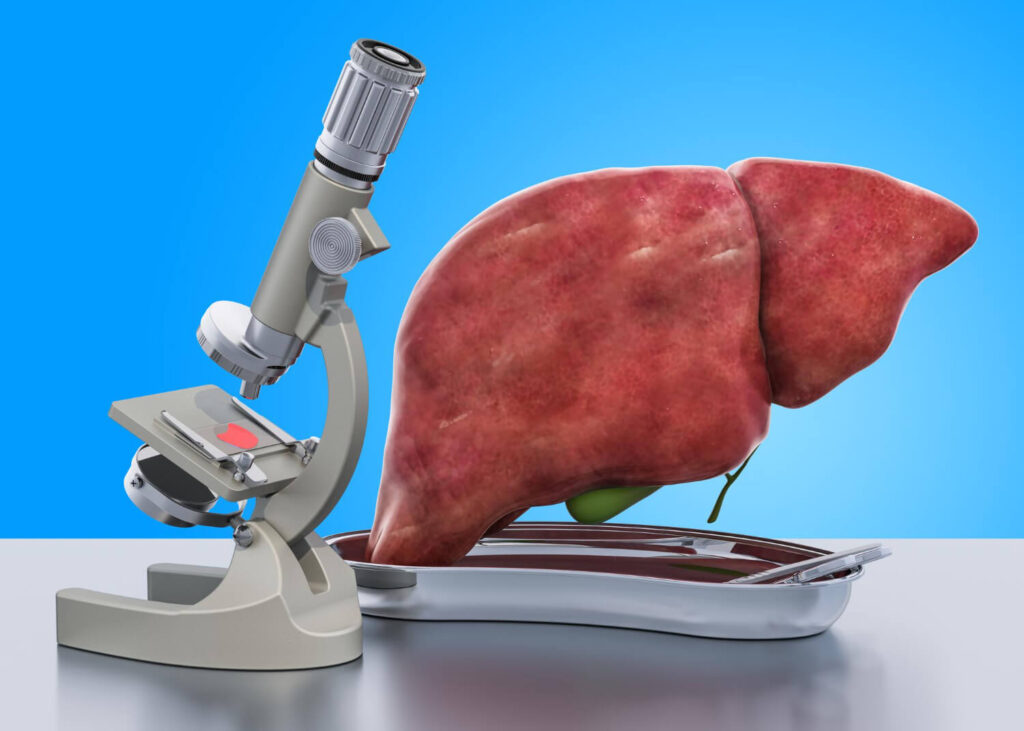When it comes to addressing health conditions, undergoing a diagnostic test can help give light on the current status of the patient. It is a vital tool that doctors commonly recommend for a more accurate understanding of one’s health. That’s why when an organ such as the liver is involved, utilizing a liver test is an important service that people should take note of.
The liver is a vital organ of the human body as it performs numerous vital functions in the body. It involves detoxifying harmful substances, producing bile for digestion, storing vitamins and minerals, and metabolizing medications. Aside from that, it is also responsible for producing proteins that are essential for blood clotting and maintaining the overall balance of body fluids. Given the liver’s crucial role in our health, it is important to assess its function regularly to ensure there’s no breach in the body system.
Although, that doesn’t mean that people are required to undergo a liver test anytime they want. There’s a specific purpose as to why this kind of test is available. If you are in need of access to such quality service from a health care professional, this blog is for you. Discover what is a liver test and when is the right time to use this medical service. Let’s begin!
What is Liver Test

Liver test or liver function test plays a crucial role in assessing the health and functioning of the liver. It is a crucial test that can help healthcare providers diagnose liver diseases, monitor liver conditions, and evaluate the effectiveness of treatments. During the test, it measures the levels of various enzymes, proteins, and substances produced by the liver. Using these factors can help identify valuable insights such as understanding the overall health of the liver.
Take note that there are various health complications that can harm the liver organ. In short, individuals who are at a higher risk of developing liver diseases such as those with a history of alcohol abuse, viral hepatitis, diabetes or obesity must be aware of the possible risk to their liver. That’s why it is important to be prepared, which a liver test can show to patients.
The Significance of Liver Test in Diagnosis
Take note that testing plays a crucial role in the diagnosis of various liver conditions. By assessing the levels of enzymes, proteins, and substances produced by the liver, these tests provide valuable information about the overall health and functioning of this vital organ.
Additionally, it is often used as an initial screening tool to detect liver diseases and assess the severity of liver damage. Abnormal liver function test results may prompt further diagnostic tests, such as imaging studies or liver biopsy, to confirm the diagnosis and determine the underlying cause of liver disease.
Furthermore, a liver test is particularly important in diagnosing chronic liver diseases, such as hepatitis B and C, alcoholic liver disease, non-alcoholic fatty liver disease, and liver cirrhosis. These conditions often have subtle or nonspecific symptoms in the early stages, making liver function tests essential for early detection and timely intervention.
Overall, liver function testing plays a crucial role in the accurate diagnosis of liver conditions. By providing valuable insights into liver health and functioning, these tests assist healthcare providers in developing appropriate treatment plans and monitoring the progress of liver diseases.
Common Liver Tests Explained
Liver tests encompass a range of specific tests that measure different aspects of liver function. These tests, along with other liver function tests, provide important information about the overall health and functioning of the liver, helping healthcare providers diagnose and monitor liver conditions.
Alanine Transaminase (ALT) Test
The Alanine Transaminase (ALT) test is a fundamental component of liver function testing. ALT is an enzyme primarily found in liver cells, and its levels in the blood can indicate liver damage or disease. When liver cells are injured or inflamed, ALT is released into the bloodstream, resulting in elevated ALT levels.
The ALT test is used to assess the extent of liver damage and monitor the progression of liver diseases. It is particularly useful in diagnosing conditions such as hepatitis, liver cirrhosis, and non-alcoholic fatty liver disease. Abnormally high ALT levels may indicate ongoing liver inflammation or damage, while a decline in ALT levels over time can be a positive sign of liver recovery.
It is important to note that elevated ALT levels do not necessarily indicate a specific liver disease but rather serve as an indicator of liver cell damage. Further evaluation and diagnostic tests, such as imaging studies or liver biopsy, may be necessary to determine the underlying cause of elevated ALT levels and guide appropriate treatment and management strategies.
Aspartate Aminotransferase (AST) Test
On the other hand, Aspartate Aminotransferase (AST) test or Aspartate Transaminase is an essential liver function test that measures the levels of AST, an enzyme present in liver cells and various other tissues. Elevated AST levels in the blood can indicate liver injury or damage.
It is important to note that AST levels alone do not provide a definitive diagnosis but rather serve as a marker of liver cell injury. Additional testing and clinical evaluation are necessary to determine the underlying cause of elevated AST levels and guide appropriate treatment and management strategies.
Additional Tests
In addition to ALT and AST tests, liver function testing often includes other specific tests that provide valuable information about liver health and functioning. These tests include:
- Alkaline Phosphatase (ALP) Test: The ALP test measures the levels of ALP, an enzyme found in the liver, bones, and other tissues. Elevated ALP levels may indicate liver damage or bone diseases.
- Albumin Test: The albumin test measures the levels of albumin, a protein produced by the liver. Abnormally low albumin levels may indicate liver damage or disease.
- Bilirubin Test: The bilirubin test measures the levels of bilirubin, a waste product produced by the breakdown of red blood cells. Elevated bilirubin levels may indicate liver damage or disease.
- Prothrombin Time Test: Another test for the liver, which focuses on checking the protein performance for clotting. It checks how fast the blood acts to form a blood clot.
These tests, along with ALT and AST tests, provide a comprehensive evaluation of liver function and help healthcare providers diagnose and monitor liver conditions. By assessing the levels of different enzymes, proteins, and substances produced by the liver, these tests offer valuable insights into liver health and functioning.
What to Expect During A Liver Test

When a patient undergoes a liver test, a blood sample will be extracted for a blood test, which can help experts for better analysis. Commonly, the experts can identify liver damage, liver disease, or abnormalities in liver function. They can also provide information about the severity of liver conditions and guide treatment decisions.
Take note that healthcare providers interpret the result of the liver test in the context of the patient’s medical history, clinical presentation, and other diagnostic findings. The liver test is not a definitive diagnostic tool for specific liver diseases. If abnormalities are detected, further testing, such as imaging studies or liver biopsy, may be recommended to confirm the diagnosis.
Interpreting Liver Test Results
After undergoing the needed liver test, it is important to understand the result, which the doctor will explain to you once it is ready. When understanding the result, the doctors will need to recognize some patterns that may possibly indicate liver damage or liver disease. That’s why healthcare providers interpret the patient’s health by referring to the medical history, their symptoms, the current liver test results, etc.
Interpreting liver test results involves comparing the measured values to established normal ranges. These normal ranges may vary slightly depending on the laboratory and the specific testing methods used. High or low levels outside the normal ranges may indicate liver problems such as liver failure, liver disease, or other underlying conditions.

Commonly, an abnormal liver test result does not provide a definitive diagnosis but serves as indicators that further evaluation is necessary. In that case, it is best to follow the next instruction of the doctor to undergo another set of tests. Once the final diagnosis is available, it will help them determine the suitable treatment options and management strategies.
Frequently Asked Questions
How often should a liver test be done?
The frequency of liver function tests depends on various factors, including the individual’s medical history, risk factors for liver disease, and the presence of liver conditions. In general, liver function tests may be done as part of routine health check-ups or if symptoms suggestive of liver disease are present. Healthcare providers determine the appropriate frequency of liver function tests based on the individual’s specific circumstances and healthcare needs.
Which liver test is the most crucial for checking liver health?
While all of them are effective for checking the liver health of the patient, it is important to note that each serves a different purpose. In short, each aspect of these tests monitors are equally important for an accurate diagnosis. So, if you need to find out which is more suitable for your case, it is best to seek a consultation with your doctor. They can determine which test is more crucial for your case.
Can liver tests detect all liver diseases?
While liver function tests provide valuable insights into liver health and functioning, they cannot detect all types of liver diseases. Some liver conditions, such as early-stage liver disease or certain genetic disorders, may not be reflected in abnormal liver function test results. Additional diagnostic tests and clinical evaluation are often necessary for a comprehensive assessment and accurate diagnosis of liver diseases.
What other kinds of tests should patients undergo to support the liver test?
As mentioned, abnormal test results from the liver test can mean the need for a more in-depth analysis. Utilizing other health care services is needed to identify medical conditions involving liver health. Some of the tools that doctors will require are ct scan, biopsy tests, etc.
Conclusion
When it comes to liver health, a liver test is an essential tool that patients must undergo. As mentioned earlier, there are various liver tests available for medical analysis. So, it’s best to consider the recommendations of a doctor when using a type of the liver test. That’s because each liver test offers specific findings, which allows the doctor to understand liver health further.
Knowing the difference between normal and abnormal results helps in identifying potential liver issues promptly. If you have concerns about your liver health or need further guidance on liver function tests, consult with a healthcare provider. Your liver’s well-being is essential for overall health, so staying informed and proactive is key. Book an online consultation with a hepatologist today. Discover if your liver is in great shape, and if other health interventions are needed for a better overall health.
Liver Test Knowledge Quiz
Test what you learned about liver function testing



